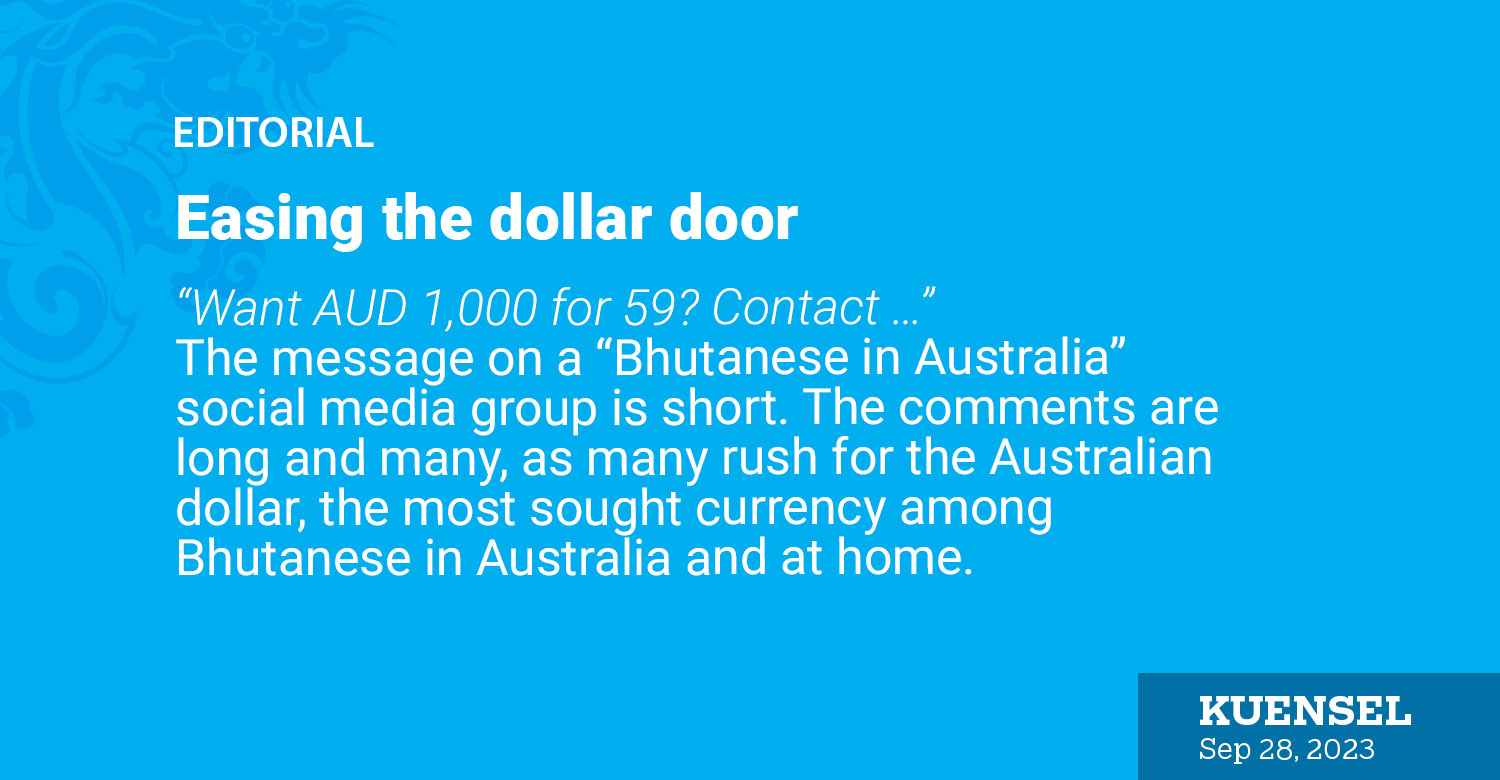“Want AUD 1,000 for 59? Contact …”
The message on a “Bhutanese in Australia” social media group is short. The comments are long and many, as many rush for the Australian dollar, the most sought currency among Bhutanese in Australia and at home.
Inward remittance is dropping. As Bhutanese continue to leave for Australia, the unofficial favourite destination, there is a rush for the AUD. Those wanting to leave or send their children need the dollar to pay for tuition, visa and other fees that come to thousands of dollars or millions of Ngultrum.
Some are investing in properties and businesses that need AUD at cheaper rates. Desperate Bhutanese pay much beyond the official bank exchange rates. All these prevent convertible currencies from coming home.
This is evident from the inflow of foreign currency. Foreign currency reserves saw a decline by about 18 percent from USD 652.03M in March to USD USD 532.23M as of June this year. It is a steep decline even if it is above the USD 464M mark for critical periods. The reserve as of June is below the threshold required to cover one year’s essential imports during normal periods, set at USD 603M.
Our foreign exchange reserve is not totally dependent on remittance. But it had helped build the reserve in the past. At one point in 2022, it contributed 4.82 percent of the gross domestic product. It was the highest remittance inflow so far, sustaining our convertible currency reserve which was and is in a freefall.
The reserves could be improved if more Bhutanese send more money home. Going by what non-resident Bhutanese (NRB) say, our banking system discourages NRB from sending money home. They may not be bothered about the foreign currency reserves, but what they do has an impact.
The common complaint among NRB is the cumbersome or bureaucratic procedures that discourage people from using official channels to remit money home. To encourage Bhutanese to send money home through banking channels, initiatives were put in place. However, it seems it is not working.
Bhutanese outside attribute delays in services and long procedures in not remitting money home. For instance, a consultant who came to start a Bhutan office relied on Bhutanese in Australia to exchange his AUD into Ngultrums. It takes, according to him, two weeks to get the Ngultrum to his account when done through banks.
Many say our banks are not linked with Australian banks to smoothen the transfer of money. A smooth way for them means timeliness. Exchange rates to many are secondary. Some are blatantly blaming our banking services and the procedures for not remitting convertible currency home. Many feel that instead of easing the procedures, they are subjected to investigations even if they want to send AUD 5,000 home.
If Bhutanese residing abroad can play a pivotal role in helping build the country’s foreign reserves, we need to ease the way people send money home. A lot of ideas are initiated, but it seems the services are not practical or the people behind the services are not doing their job.
Any Bhutanese would use the formal channel if it is efficient and even pay a Ngultrum more.


